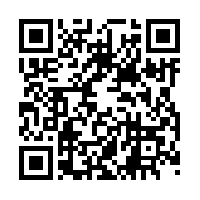75 Study Questions, Activities, and Resources
Study Questions and Activities
Drummer Hodge
- What place and what war make up the setting?
- Compare the point of stanza 3 to a similar point made in Rupert Brooke’s “The Soldier.”
The Subalterns
- Clarify Hardy’s use of personification in each stanza.
- Define the adjective “fell” in the last stanza, then paraphrase the sentence that comprises the last stanza.
The Ruined Maid
- What are some meanings of the word “ruined”?
- Look up the word “maid.” What does the word mean in the title?
- Describe the structure: the number of speakers, the use of dashes, who speaks first, who speaks last.
- Describe the two former co-workers.
- Can you distinguish between the two women’s speech patterns?
- What is the main irony?
The Impercipient
- Look up the word “percipient,” then state the significance of the prefix “im.”
- In stanza 2, focus on the word “infelicity.” Look up “felicity” in the Oxford English Dictionary, and then consider the importance of the prefix “in.”
- In stanza 3, why does the speaker feel it might be appropriate to be the object of Christian charity?
- Suggest synonyms for the verb “mark” in stanza 4 and the adjective “meet” in stanza 5.
- What is the meaning of “liefer” in stanza 5?
- In stanza 5, what charge or accusation against the speaker adds insult to injury?
- Paraphrase the last two lines. What is their overall tone?
Mad Judy
- Who is the speaker?
- In stanza 2, Judy uses the metaphor “this stony shore.” To what does she refer?
- Look up “brands” and “headsman” in a good dictionary.
- Explain the irony in the poem. Which of the three types of irony is it?
The Going and The Haunter
- Read the discussion of the poems about Emma by Andrew Moore at the following link: http://www.universalteacher.org.uk/poetry/hardy
- Who was Emma Gifford (1840-1912)?
The Convergence of the Twain
- In what year did the Titanic sink?
- Define both nouns in the title.
- Paraphrase the first stanza, placing the grammatical subject at the beginning of the sentence.
- Who is guilty of pride?
- How does alliteration emphasize theme?
- How is the deity depicted? How is the deity depicted in “Let Me Enjoy”?
- What is the “creature of cleaving wing”?
- Clarify the marriage metaphor in the poem.
Ah, Are You Digging on My Grave?
- Clarify the major irony and its type in this poem.
- Compare this poem with Housman’s “Is My Team Ploughing?”
Channel Firing
- To what promised biblical event does the poem refer?
- Who is the speaker?
- How does Hardy use humour to make serious points about war?
- How is this a pessimistic poem?
- Discuss the thematic significance of the three places mentioned in the last two lines.
The Man He Killed
- Comment on how the speaker’s diction characterizes him.
- Why did the soldier enlist?
- Give specific examples of irony in the third stanza and final stanzas. What are the denotations of “quaint” and “curious”?
- How does Hardy’s use of dashes affect the metre and theme?
Resources
Hap
Read the sample student essay on “Hap”: http://blue.utb.edu/gibson/Hap.htm
Let Me Enjoy
Listen to this poem as it was set to music by Gerald Finzi (1901-56):
Attributions
Figure 1
Thomas Hardy restored by Bain News Service, publisher (http://en.wikipedia.org/wiki/File:Thomashardy_restored.jpg) is in the Public Domain


